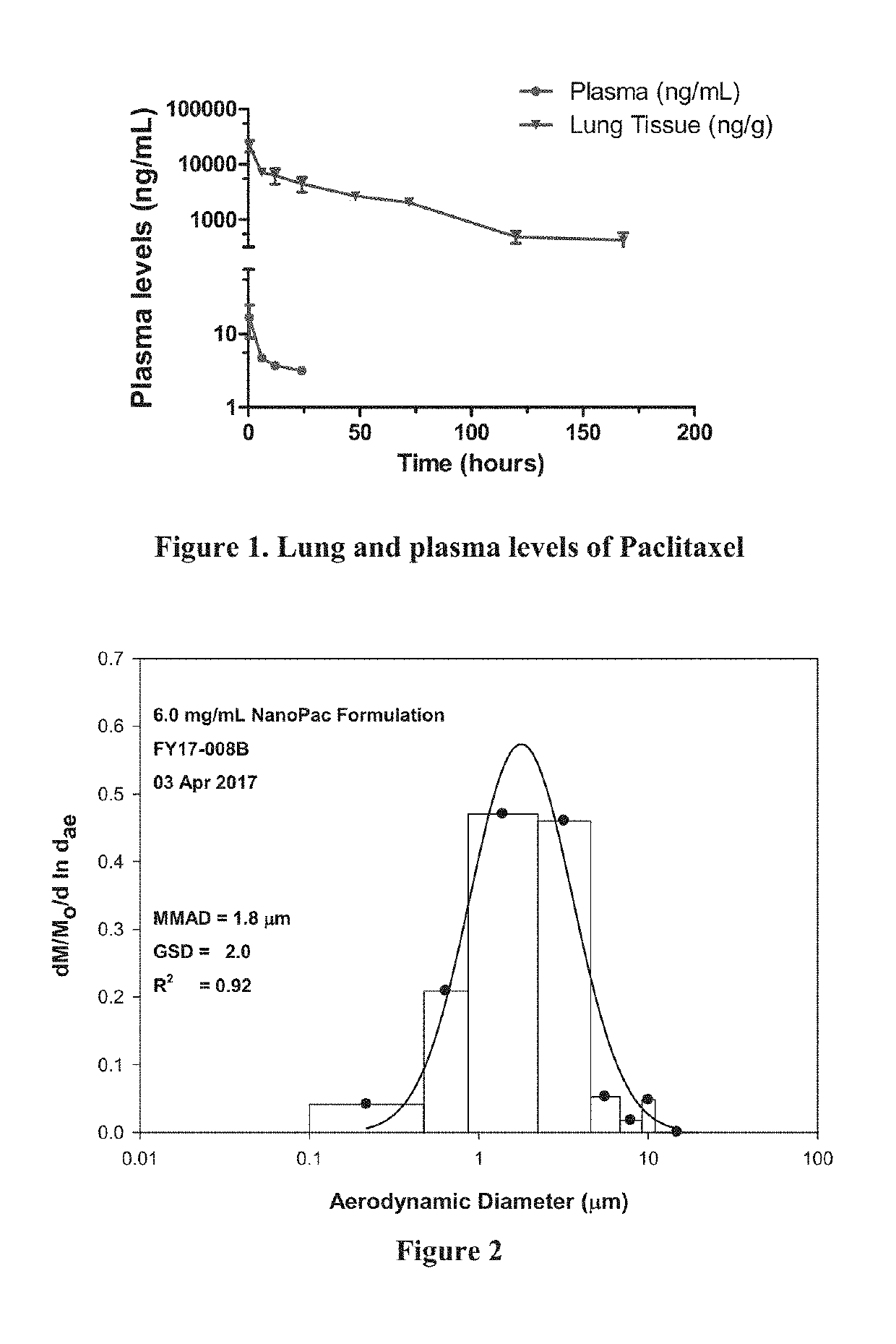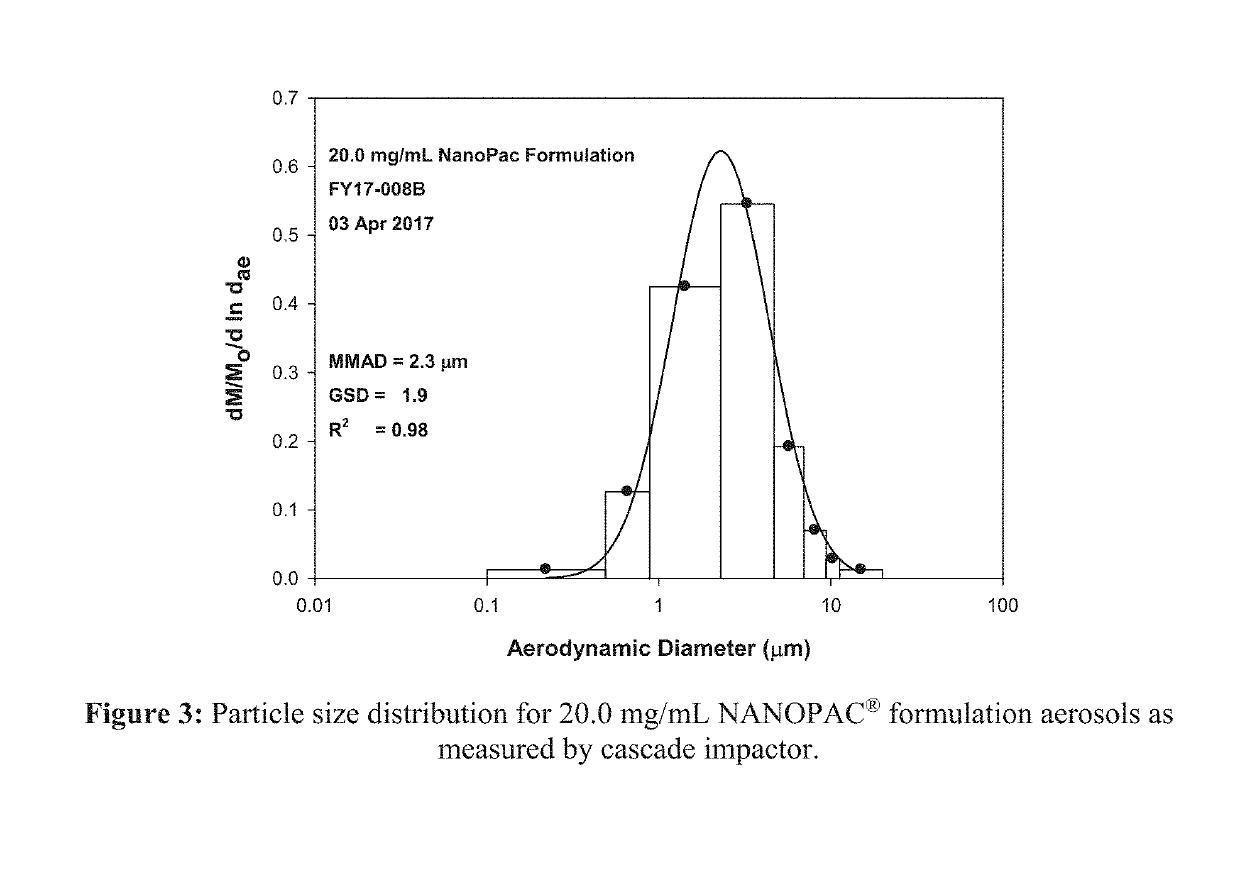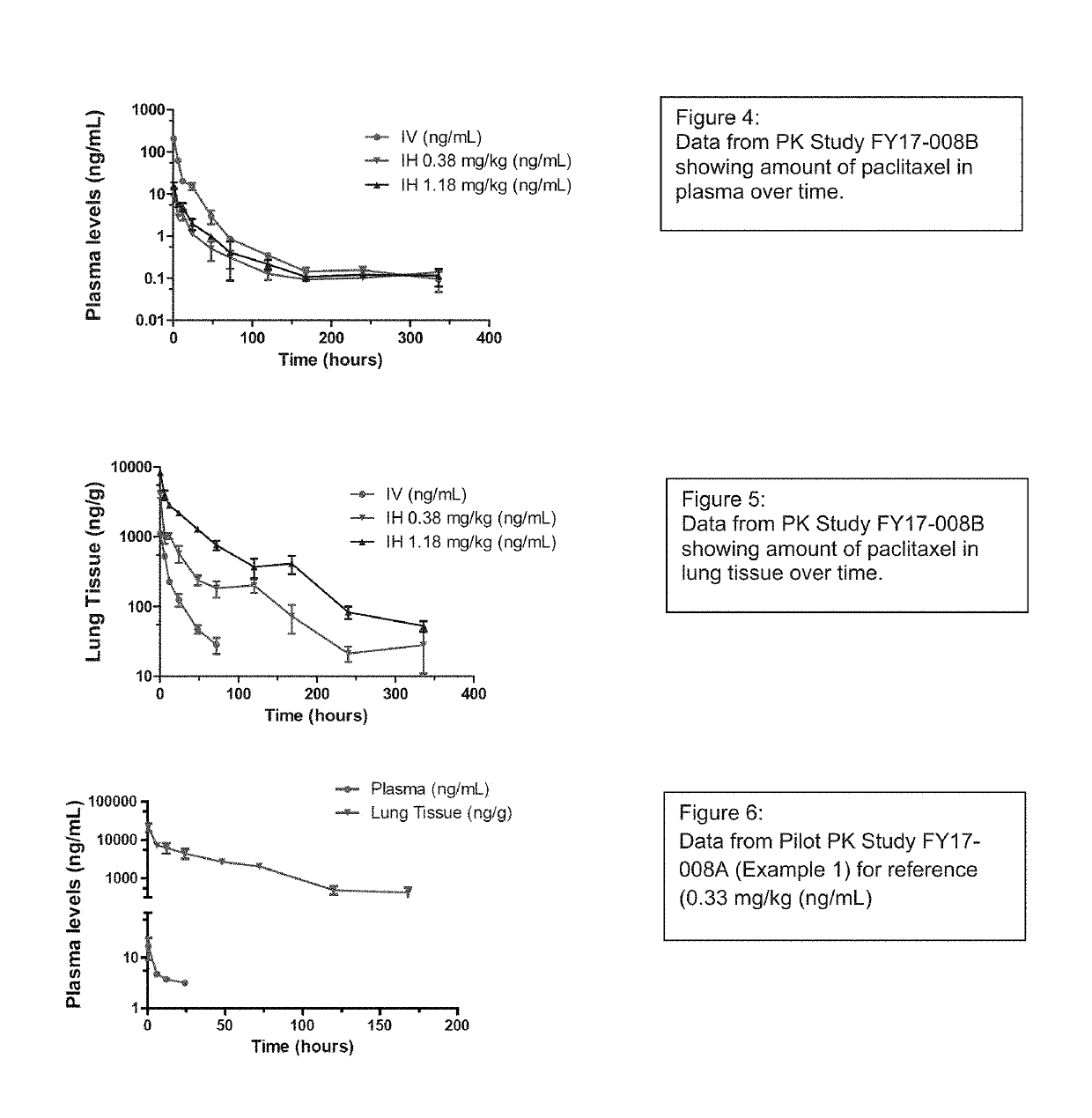Methods for treating lung disorders
a lung disease and lung cancer technology, applied in the field of lung disease treatment methods, can solve the problems of limited amount of taxane drugs reaching lung tumors, unsatisfactory long-term survival rates of chemotherapy, etc., and achieve the effect of reducing or eliminating tumors
- Summary
- Abstract
- Description
- Claims
- Application Information
AI Technical Summary
Benefits of technology
Problems solved by technology
Method used
Image
Examples
example 2
7-008B—Paclitaxel Particle Aerosol Inhalation Exposure Study
Executive Summary
[0247]The overall objective of this work was to conduct nose-only inhalation exposure to male rats with paclitaxel particle suspension formulations of 6.0 mg / mL and 20.0 mg / mL. Rat inhalation exposures were conducted for 65 minutes each.
[0248]Paclitaxel particle suspension formulations of 6.0 mg / mL and 20.0 mg / mL were prepared as per instructions provided by the sponsor. Two Hospitak compressed air jet nebulizers were used simultaneously at 20 psi for aerosolization of paclitaxel particle formulation into the rodent inhalation exposure chamber. During each exposure, aerosol concentration was measured from animal breathing zone by sampling onto 47-mm GF / A filters at a flow rate of 1.0±0.5 L / minute. Particle size was determined by sampling aerosols from animal breathing zone using Mercer style cascade impactor at a flow rate of 2.0±0.1 L / minute. Filters were analyzed gravimetrically to determine total paclita...
example 3 evaluating
Efficacy of Inhaled Paclitaxel Particle Formulations in the Nude Rat Orthotopic Lung Cancer Model—Study FY17-095
Executive Summary
[0263]One hundred twenty-seven (127) NIH-rnu Nude Rats were x-irradiated to induce immunosuppression on Day −1. On Day 0 animals were dosed with Calu3 tumor cells by intratracheal (IT) instillation. Animals underwent a growth period of three weeks. During the third week, animals were randomized by body weight stratification into 5 study groups. Starting Week 4, animals in Group 2 received a once weekly dose of ABRAXANE® by intravenous (IV) dosing (5 mg / kg) on Days 22, 29 and 36. Animals in Groups 3 and 4 received once weekly (Monday) inhalation (INH) dose of paclitaxel particle formulations at low (0.5 mg / kg) and high (1.0 mg / kg) target doses, respectively. Animals in Groups 5 and 6 received a twice weekly (Monday and Thursday) target inhalation dose of paclitaxel particle formulations at low (0.50 mg / kg) and high (up to 1.0 mg / kg) doses respectively. Anim...
example 4
17-008B—Paclitaxel Particle Pharmacokinetic Study
Executive Summary
[0331]Ninety (90) male Sprague Dawley rats were exposed to “clinical reference” dose of paclitaxel, ABRAXANE® (paclitaxel protein bound particles for injectable suspension, aka nab-paclitaxel), by intravenous (IV) bolus injection or paclitaxel particle formulation (target dose of 0.37 or 1.0 mg / kg) by nose only inhalation on a single occasion. Three animals (n=3) were euthanatized at ten (10) timepoints from 0.5 to 336 hours post exposure for blood (plasma) and lung tissue collections. Non-compartmental analysis (NCA) was performed on plasma and lung tissue to identify the duration of detectable amounts of paclitaxel post exposure for each dose group. Animals designated to the 336 hour time point from all groups had right lungs collected for liquid chromatography-mass spectrometry (LCMS) analysis while the left lungs were perfused with 10% neutral buffered formalin (NBF) and retained for potential histopathology. In o...
PUM
| Property | Measurement | Unit |
|---|---|---|
| diameter | aaaaa | aaaaa |
| specific surface area | aaaaa | aaaaa |
| mean particle size | aaaaa | aaaaa |
Abstract
Description
Claims
Application Information
 Login to View More
Login to View More - R&D
- Intellectual Property
- Life Sciences
- Materials
- Tech Scout
- Unparalleled Data Quality
- Higher Quality Content
- 60% Fewer Hallucinations
Browse by: Latest US Patents, China's latest patents, Technical Efficacy Thesaurus, Application Domain, Technology Topic, Popular Technical Reports.
© 2025 PatSnap. All rights reserved.Legal|Privacy policy|Modern Slavery Act Transparency Statement|Sitemap|About US| Contact US: help@patsnap.com



